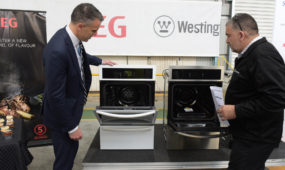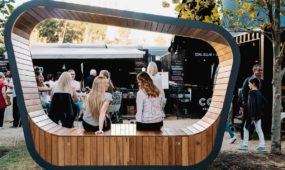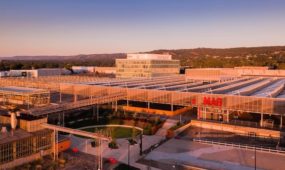Aussie city set for autonomous car trials
Manufacturing
DRIVERLESS car technology that allows vehicles to “see” around corners will be tested on city streets for the first time.

Sign up to receive notifications about new stories in this category.
Thank you for subscribing to story notifications.
Australian company Cohda Wireless will use a AU$2 million government grant to purchase two autonomous cars to test its world-leading radar technology on public roads.
The grant from the South Australian Government’s Future Mobility Lab Fund will also enable Cohda to test the technology on the streets of the state’s capital Adelaide.
The two cars will be fitted with the company’s V2X-Radar (Vehicle to Everything Radar), which will allow them to detect buildings, road signs and even older vehicles not equipped with car-to-car communications.
Unlike current technologies, Cohda’s V2X-Radar is unaffected by rain, snow or fog, and can “see” around corners.
Last year, South Australia became the first state in the country to introduce laws allowing for trials of driverless cars on open public roads.
The V2X-Radar technology has been trialled on the closed Southern Expressway, on the outskirts of Adelaide, but the next phase of testing will see it trialled in the CBD and on other urban roads.
Cohda CEO Paul Gray said South Australia was the ideal place to base the company because its laws meant that once the technology was developed it could be tested in real-world situations.
“The sensor suites in autonomous vehicles today are still not perfect and there are still some issues,” he said.
“We basically developed a range of applications that improve CAV (Connected Autonomous Vehicles) localisation and CAV sensor fidelity.
“It also reduces the cost because it uses existing infrastructure and we simply put in additional software to create greater accuracy.
Gray said Cohda’s technology could be programmed into autonomous vehicles to increase their capabilities, potentially reducing the overall cost.
The V2X-Radar uses the IEEE 802.11 compliant wireless signals of current V2X systems to share sensor information between vehicles and infrastructure.
These radio signals bounce off walls, road signs and other vehicles as they travel from transmitter to receiver. V2X-Radar can use these radio waves to identify objects within that environment, including non-V2X equipped vehicles.
Combined with a 3D map, the V2X-Radar can provide highly accurate positioning and can also instantly detect vehicle speeds via Doppler measurements.
“Imagine driving down a row of park cars with a pedestrian standing in between two of them, about to head into traffic,” Gray said.
“This scenario is something that cameras, radars and LIDARs have problems picking up.
“This Government fund would help to improve that, branching from technology that turns Wi-Fi into a form of radar.”
Gray said he hoped the trials would begin in the coming months but it was dependent on when Cohda officially received the grant.
The $10m Future Mobility Lab Fund was announced in November 2016 to boost local testing, research and development of connected and autonomous vehicle technologies.
Other projects supported by the fund include autonomous vehicle trials at Adelaide Airport, Flinders University and a self-driving transport trial at Tonsley.
Transport and Infrastructure Minister Stephen Mullighan said South Australia was focused on becoming a global CAV leader by making it an attractive destination for global firms to test, develop and trial their technology.
“Since it was founded in Adelaide in 2004, Cohda Wireless has become one of South Australia’s most impressive success stories, creating products now used in more than 60 per cent of connected car field trials worldwide,” he said.
“Its global reputation as a world leader in connected car technology has not only helped to grow this local business, it has also contributed to South Australia’s reputation as an Australian leader in adopting and fostering driverless and autonomous technology.”
Jump to next article



